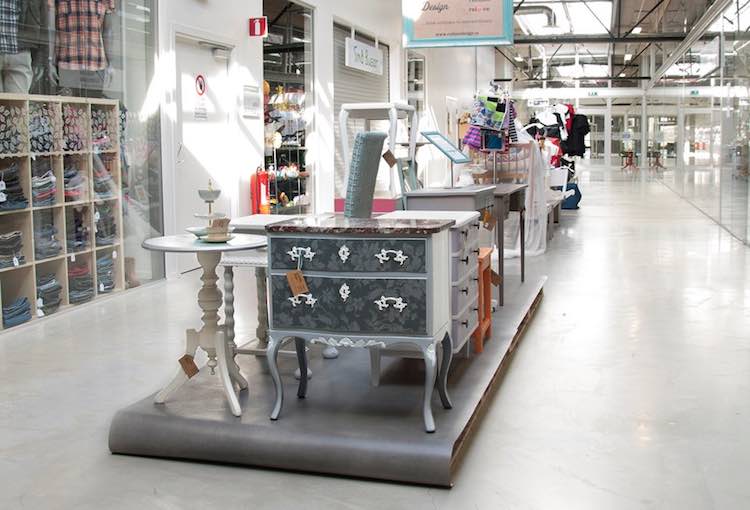 |
| Reviews and Templates for Expression We |
Sweden Opens World’s First Mall for Repaired and Recycled Goods
A new generation of recycling has now gone from local drop-off centers to a shopping mall that sells only repaired or upcycled products.
The new recycling establishment, ReTuna Återbruksgalleria, has nothing to do with the fish; instead, it was named after the Swedish town in which the building is located, Eskilstuna, Sweden.
The facilities contain both a recycling center and a shopping mall. Customers can donate the items that they no longer need, then shop for something new – all in one stop.Dropped off goods are sorted into various workshops where they are refurbished or repaired accordingly. Products are then sorted into 14 specialty shops that include furniture, computers, audio equipment, clothes, toys, bikes, and gardening and building materials; all garnered from second-hand products.
The center also includes a café and restaurant with a heavy focus on organic products, as well as a conference and exhibition facility complete with a specialty school for studying recycling.
The center, which is operated by the local municipality, has benefitted the local economy by creating 50 new repair and retail jobs, and providing space for private start-ups and local artisans.
The biggest bonus for the Swedish community is how the center relieves local government from the tremendous burden and expense of disposing of unwanted goods while turning potential “waste” into profits.
“Our idea is that the customer comes here and leaves for example some furniture and clothing that can get tired or have no use for anymore,” says Anna Bergström, center manager ReTuna Recycling Galleria. “Then you go a lap at the mall. Maybe find a new jacket and a new framework that will make the photograph of the grandfather unique and extra fine. Since you eat organic lunch in our restaurant to gather strength to go another lap and find new flowers for the garden and a new lamp for the living room. When you leave here, you should feel that you did something good for the environment and that they shopped climate.”
|
|
|
|
Copyright remains with the original authors |
